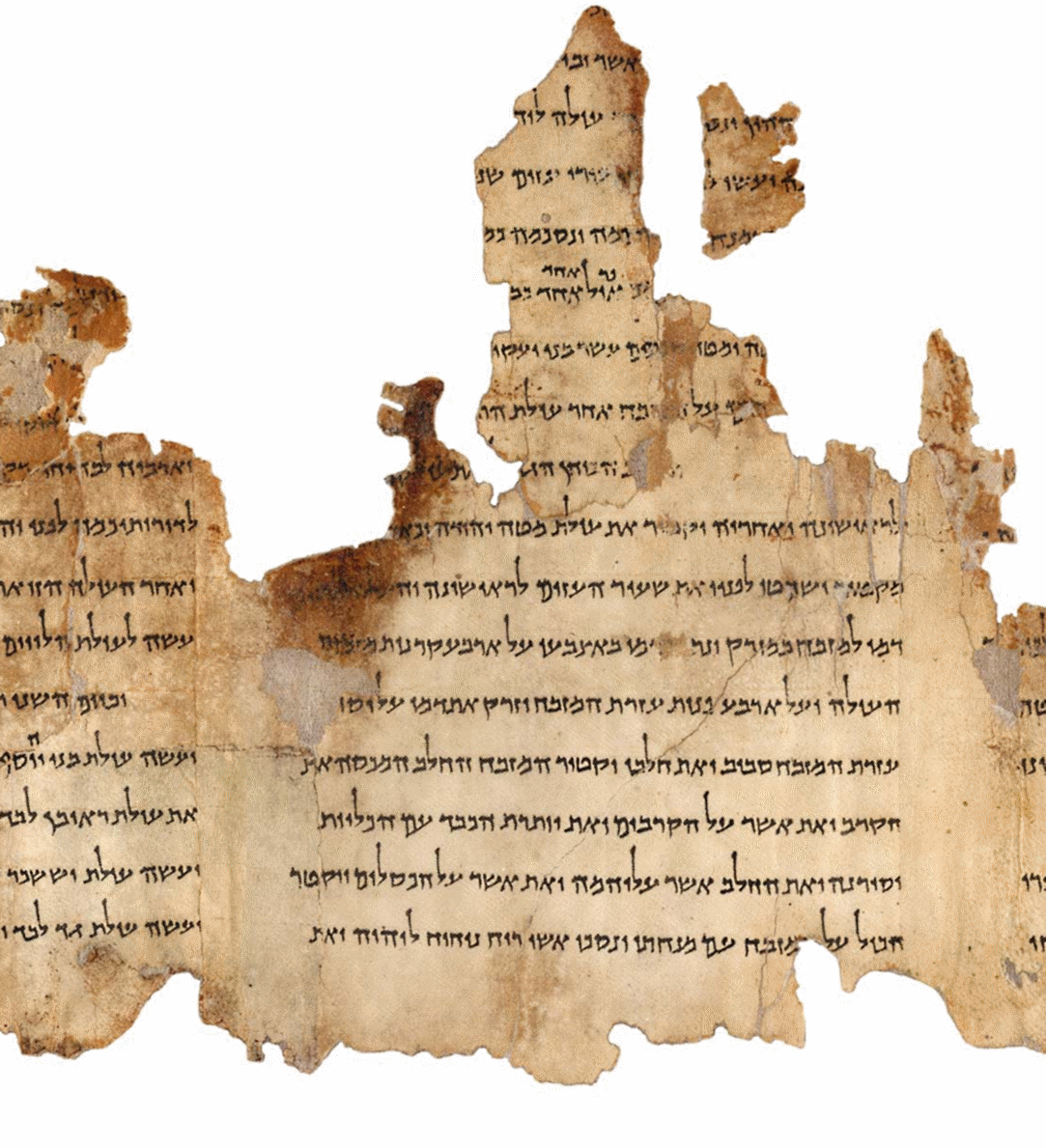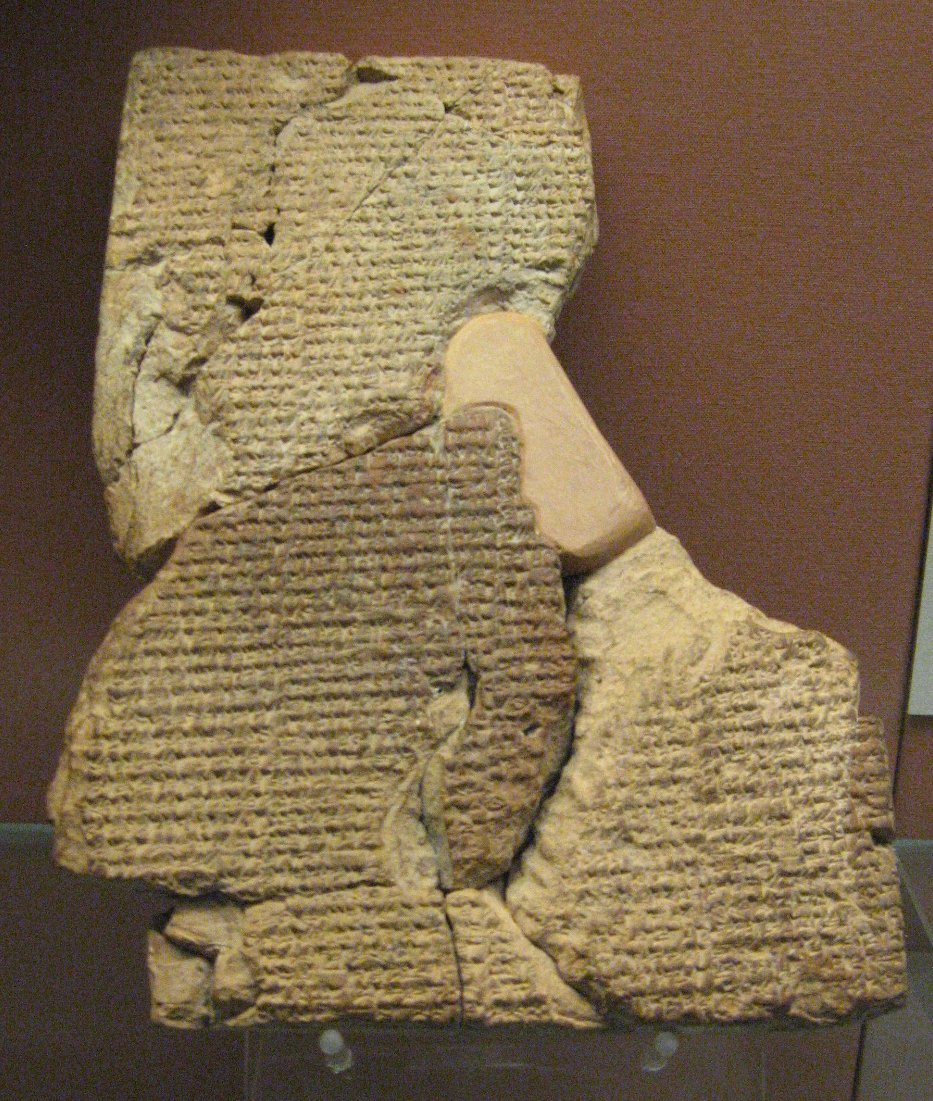Stryder50
Platinum Member
For consideration and reference sake;
...
Elohim (Hebrew: אֱלֹהִים, romanized: ʾĚlōhīm: [(ʔ)eloˈ(h)im]) is a Hebrew word meaning "gods". Although the word is plural in form, in the Hebrew Bible it usually refers to a single deity,[1][2][3][4] particularly (but not always) the God of Israel.[1][2][3][4][5][6] At other times it refers to deities in the plural.[1][2][3][4][5][6]
Morphologically, the word is the plural form of the word eloah[1][2][4][7][8][9] and related to el. It is cognate to the word 'l-h-m which is found in Ugaritic, where it is used as the pantheon for Canaanite gods, the children of El, and conventionally vocalized as "Elohim". Most uses of the term Elohim in the later Hebrew text imply a view that is at least monolatrist at the time of writing, and such usage (in the singular), as a proper title for the supreme deity, is generally not considered to be synonymous with the term elohim, "gods" (plural, simple noun). Rabbinic scholar Maimonides wrote that the various other usages are commonly understood to be homonyms.[10]
One theory suggests that the notion of divinity underwent radical changes in the early period of Israelite identity and development of Ancient Hebrew religion. In this view, the ambiguity of the term elohim is the result of such changes, cast in terms of "vertical translatability", i.e. the re-interpretation of the gods of the earliest recalled period as the national god of monolatrism as it emerged in the 7th to 6th century BCE in the Kingdom of Judah and during the Babylonian captivity, and further in terms of monotheism by the emergence of Rabbinical Judaism in the 2nd century CE.[11]
...

 en.wikipedia.org
~~~~~~~~~~
en.wikipedia.org
~~~~~~~~~~
The Nephilim (/ˈnɛfɪˌlɪm/; Hebrew: נְפִילִים Nəfīlīm) are mysterious beings or people in the Hebrew Bible who are large and strong.[1] The word Nephilim is loosely translated as giants in some translations of the Hebrew Bible, but left untranslated in others. Jewish explanations interpret them as hybrid sons of fallen angels.
The main reference to them is in Genesis, but the passage is ambiguous and the identity of the Nephilim is disputed.[1][2] According to the Book of Numbers 13:33, they later inhabited Canaan at the time of the Israelite conquest of Canaan.
A similar or identical biblical Hebrew term, read as "Nephilim" by some scholars, or as the word "fallen" by others, appears in the Book of Ezekiel 32:27.[3][4]
...
In the Hebrew Bible, there are three interconnected passages referencing the nephilim. Two of them come from the Pentateuch. The first occurrence is in Genesis 6:1–4, immediately before the account of Noah's Ark. Genesis 6:4 reads as follows:
The nature of the Nephilim is complicated by the ambiguity of Genesis 6:4, which leaves it unclear whether they are the "sons of God" or their offspring who are the "mighty men of old, men of renown." Richard Hess takes it to mean that the Nephilim are the offspring,[16] as does P. W. Coxon.[17]
...

 en.wikipedia.org
~~~~~~~~~~~~~~~
en.wikipedia.org
~~~~~~~~~~~~~~~
Implications and further explanations in next post.
...
Elohim (Hebrew: אֱלֹהִים, romanized: ʾĚlōhīm: [(ʔ)eloˈ(h)im]) is a Hebrew word meaning "gods". Although the word is plural in form, in the Hebrew Bible it usually refers to a single deity,[1][2][3][4] particularly (but not always) the God of Israel.[1][2][3][4][5][6] At other times it refers to deities in the plural.[1][2][3][4][5][6]
Morphologically, the word is the plural form of the word eloah[1][2][4][7][8][9] and related to el. It is cognate to the word 'l-h-m which is found in Ugaritic, where it is used as the pantheon for Canaanite gods, the children of El, and conventionally vocalized as "Elohim". Most uses of the term Elohim in the later Hebrew text imply a view that is at least monolatrist at the time of writing, and such usage (in the singular), as a proper title for the supreme deity, is generally not considered to be synonymous with the term elohim, "gods" (plural, simple noun). Rabbinic scholar Maimonides wrote that the various other usages are commonly understood to be homonyms.[10]
One theory suggests that the notion of divinity underwent radical changes in the early period of Israelite identity and development of Ancient Hebrew religion. In this view, the ambiguity of the term elohim is the result of such changes, cast in terms of "vertical translatability", i.e. the re-interpretation of the gods of the earliest recalled period as the national god of monolatrism as it emerged in the 7th to 6th century BCE in the Kingdom of Judah and during the Babylonian captivity, and further in terms of monotheism by the emergence of Rabbinical Judaism in the 2nd century CE.[11]
...

Elohim - Wikipedia
The Nephilim (/ˈnɛfɪˌlɪm/; Hebrew: נְפִילִים Nəfīlīm) are mysterious beings or people in the Hebrew Bible who are large and strong.[1] The word Nephilim is loosely translated as giants in some translations of the Hebrew Bible, but left untranslated in others. Jewish explanations interpret them as hybrid sons of fallen angels.
The main reference to them is in Genesis, but the passage is ambiguous and the identity of the Nephilim is disputed.[1][2] According to the Book of Numbers 13:33, they later inhabited Canaan at the time of the Israelite conquest of Canaan.
A similar or identical biblical Hebrew term, read as "Nephilim" by some scholars, or as the word "fallen" by others, appears in the Book of Ezekiel 32:27.[3][4]
...
In the Hebrew Bible, there are three interconnected passages referencing the nephilim. Two of them come from the Pentateuch. The first occurrence is in Genesis 6:1–4, immediately before the account of Noah's Ark. Genesis 6:4 reads as follows:
Where the Jewish Publication Society translation[14] simply transliterated the Hebrew nephilim as "Nephilim", the King James Version translated the term as "giants."[15]The Nephilim were in the earth in those days, and also after that, when the sons of God came in unto the daughters of men, and they bore children to them; the same were the mighty men that were of old, the men of renown.[14]
The nature of the Nephilim is complicated by the ambiguity of Genesis 6:4, which leaves it unclear whether they are the "sons of God" or their offspring who are the "mighty men of old, men of renown." Richard Hess takes it to mean that the Nephilim are the offspring,[16] as does P. W. Coxon.[17]
...

Nephilim - Wikipedia
Implications and further explanations in next post.





